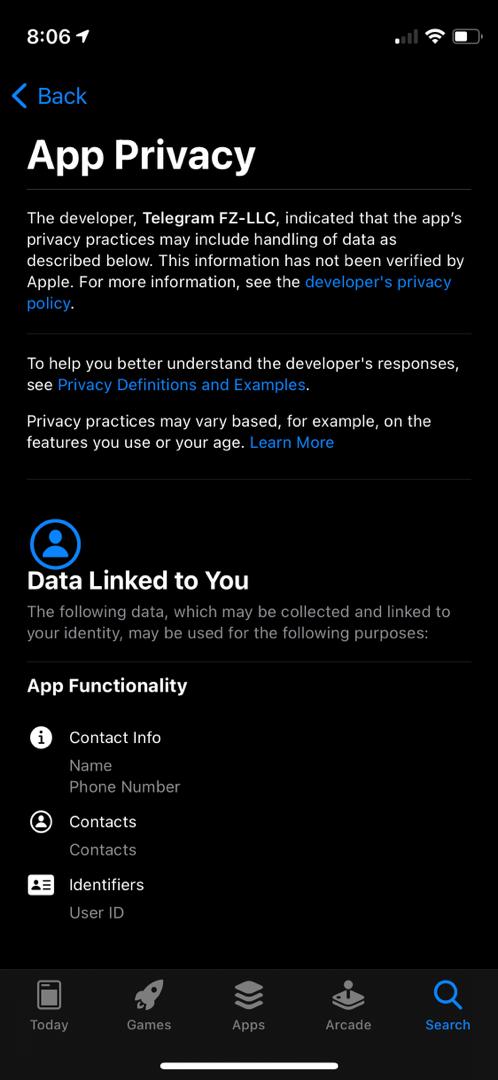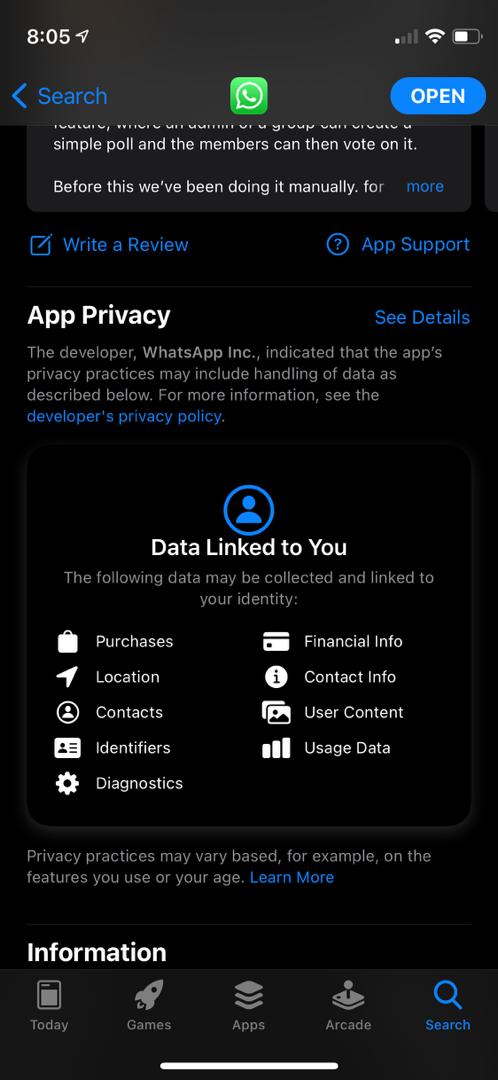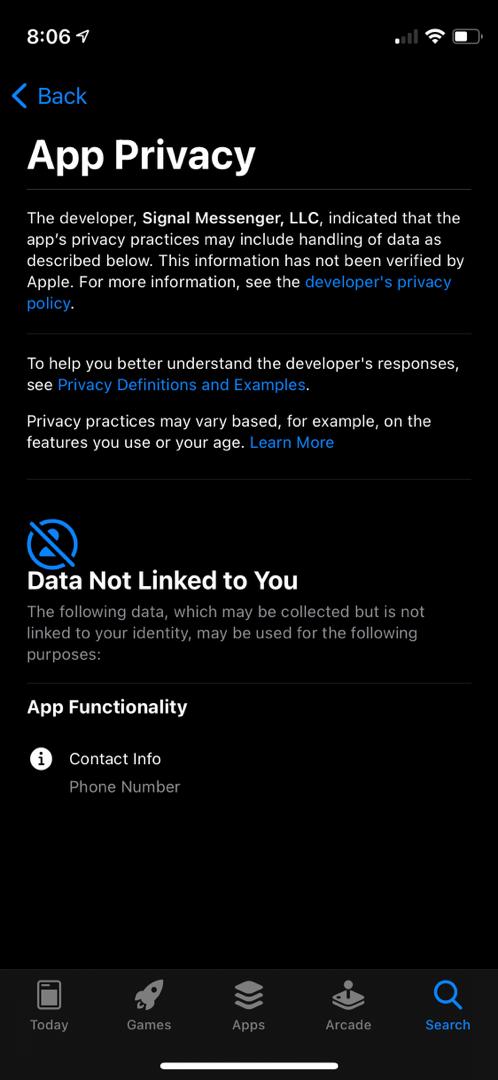Unless you’ve been living under a rock during the past couple of months, you might’ve heard that WhatsApp is currently under heavy fire over its recently updated terms and privacy policy. At the time, the company gave users an ultimatum of sorts: to agree by the 8th of February 2021, or lose access to their chats. Predictably, there was a public outcry over the new terms—which include more data sharing and integration with the Facebook family of apps (Instagram, Facebook, Messenger).
In response, WhatsApp postponed the update and deadline to the 15th of May 2021—which gives all of us a little more time to understand the thinking behind the new terms, and what they mean for us with regards to privacy. To shed some light on the issue, we spoke to Sravanthi Dev, Communications Director at WhatsApp, who says that users shouldn’t be alarmed, and rumours should be tempered with an understanding of what the new terms actually mean.
So… what do they mean?
According to Sravanthi, the policy changes mainly centre around messages sent between consumers and businesses. WhatsApp has played a big role in the digitalising of the economy—particularly during the COVID-19 pandemic, and the new terms are a part of the Facebook-owned company’s move towards a more centralised business ecosystem. And while WhatsApp’s consumer products are completely free to use, the WhatsApp Business API product is the company’s money-maker.
“In this instance with this privacy policy, it only deals with messaging that are exchanged between a consumer and a WhatsApp API account.”
Sravanthi stresses that the updated terms and privacy policy only deal with messaging where a WhatsApp API account is involved, which gives users “complete control” over what they choose to share over the platform. This also means that for conversations with these accounts, WhatsApp will be rolling out a new feature that labels these chats—so you can choose to ignore, block, or communicate with these businesses.
Basically, the increased information being shared between Facebook’s ecosystem of companies will only be used for “performance and diagnostics”, to help provide good service. The director acknowledged that WhatsApp does indeed collect more data than Signal (one of its main rivals), but argued that only “minimal data” is collected from users. And the underlying message to all of that, according to Sravanthi, is that your data is not used for anything beyond cross-platform business features:
“In the WhatsApp business app, you have the ability to create catalogues. Businesses have the ability to create shops on Facebook, on Instagram, and they can link those shops on their WhatsApp profiles, so that you as a customer can go there, connect items, and ultimately purchase them. When we talk about information that is shared, it’s really specific to those experiences—to improve the experience for customers and the business.”
Will there be ads on WhatsApp?
No, there won’t be ads on WhatsApp, Sravanthi assures users. The company is looking to generate revenue via the business API product, and WhatsApp is “not in the business of ads”, Sravanthi says.
“The DNA of WhatsApp and the reason why we’ve been so successful is we provide a really simple app that’s reliable, and secure, and people feel safe. We remain committed to that, and we’re learning.”
The new terms, according to Sravanthi, only allow Facebook to connect the WhatsApp account between the customer, and the business. Neither Facebook nor WhatsApp have access to this information, and end-to-end encryption is still very much the default security method when it comes to all messages and communications on the platform.
Of course, this doesn’t negate the fact that WhatsApp does indeed collect more information compared to some of its competitors, such as Signal (as mentioned earlier). A quick look at these screenshots of the iOS App Store, which handily lists the data that will be collected by the app, proves this:
WhatsApp’s Communications Director acknowledges this, but assures that your private data is still… very much private. The worry among many, when it comes to the increased data collected by the app, is that the collected information can then be used for stuff like ads, or some form of personalised recommendations. However, this appears not to be the case:
“All Facebook is able to do is connect the WhatsApp account between the customer and the business together. The new terms allow us to be able to provide those type of services to ease the communications between businesses and customers. But it does not mean Facebook has the ability to take that data and do other things with it.”
What happens if I don’t click “accept”?
The interview with Sravanthi Dev happened prior to the recent deadline postponement, but she assures users that even if you don’t click accept to the new terms by the deadline, your WhatsApp account will not be deleted. Instead, you’ll continue to receive calls and message notifications—but you won’t be able to use the “full WhatsApp functionality”, which includes making calls, and actually reading your messages. Still, users are free to accept the terms after the deadline has passed, although the app will be severely handicapped with regards to functionality in the meantime.
WhatsApp also maintains that the platforms still gives users “complete control”:
“They are in complete control of the messages that they send, and who they interact with on WhatsApp. You can decide whether you want to message a business. You have to initiate that conversation. And you can decide when you want to end that conversation.”
3 key takeaways
There are a couple of main takeaways to all of this. For one thing, WhatsApp will not display ads within the app, according to Sravanthi. The company is also maintaining the end-to-end encryption protocol that will prevent anyone beyond the sender and recipient from viewing the contents of your messages. This includes WhatsApp and Facebook themselves. In fact, Sravanthi also revealed that their app uses the same open source encryption protocol as Signal.
And finally, it seems like users do have a degree of control over how much of their data gets shared with WhatsApp and Facebook. From our understanding, if you choose not to engage with any WhatsApp business API accounts, you shouldn’t see change in the kind of data that’s being collected. Of course, how that actually plays out once the new terms come into effect remains to be seen. For now, all we have is WhatsApp’s word.
Regardless, if you’re still unconvinced, there are a bunch of other messaging apps available in the market. If you’re keen to look at some of these alternatives, we recently published an article that looks at the security and viability of other popular messaging apps, which you can read here.












